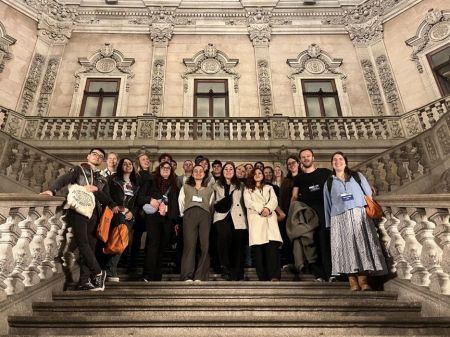We are pleased to share news of a new book relevant to…
Cooperatives Europe round-up

Cooperatives Europe has released its co-operative manifesto in advance of the European Parliament elections to be held between 22-25 May.
This document is the result of an extensive consultation process by the members of Cooperatives Europe.
In the next five years the European Parliament will have to work to relaunch the European economy and to create jobs. The regional organisation for the International Co-operative Alliance said it will support the work of the European Parliament to build up a resilient and innovative economy which serves people's needs and aspirations.
Three goals in the manifesto show Cooperatives Europe’s policy priorities, these are:
1. A supportive EU policy framework for cooperatives: To create a resilient and diverse economy, the European Union and its member states need a regulatory environment that allows different business forms to develop on a level playing field.
2. Increase co-operative awareness among younger people: With younger people increasingly interested in socially responsible business, youth employment in Europe would benefit if younger people’s knowledge of cooperatives and other innovative business models was developed.
3. A co-operative roadmap to support business start-ups and growth: To create an environment in which people can start and grow different forms of business, entrepreneurs require appropriate education, finance and business support.
To read more, visit: https://coopseurope.coop/about-cooperatives/2014-eu-parliament-elections
Cooperatives Europe has released a position paper during consultation on draft guidelines of Environmental and Energy Aid for 2014-2020.
The Alliance's regional body considers that suggested guidelines are far too restrictive, preventing member states to fulfil their renewable energy share targets by 2020. Instead of providing security for investors, they risk to increase uncertainty and hinder investment.
The draft guidelines on state aid for environment and energy contain elements that could be harmful to the interests of emerging decentralized renewable energy producers and suppliers, according to Cooperatives Europe.
Those guidelines together with the Commission’s recent proposal for a 2030 climate and energy package overwhelmingly represent the interests of the big energy utilities, nuclear industry and non-renewable energy processing countries in Europe. This threatens existing EU and national laws and guidelines on renewable energy put in place over the last 10 years, which have demonstrated their effectiveness.
Director of Cooperatives Europe Klaus Niederlander said: “In our view, these draft guidelines risk interfering with current EU legislation, such as the renewable energy directive (2009/28/EC). In particular they fail to take into consideration the interests of local and regional renewable energy producers, such as cooperatives. We are confident that the European Commission will ensure a more balanced policy framework and a level playing field for all types of existing as well as emerging energy enterprises.”
This initiative fits in-line with the Alliance’s Blueprint for a Co-operative Decade, which calls on the movement to be the acknowledged leader in economic, social and environmental sustainability. For more, see: http://ica.coop/en/blueprint-co-op-decade/aims-and-goals
Last month, Cooperatives Europe also released its contribution to the consultation of the EU Commission on a draft notice on the notion of state aid. The objective of the draft notice is to provide guidance for identifying state aid measures that need to be notified to the EU Commission for approval.
Cooperatives Europe welcomes the consultation and expects to reinforce cooperatives identity with its contribution to the consultation. Cooperatives Europe has focused its remarks on the section regarding special fiscal aid issues and cooperative societies. Read more here.




